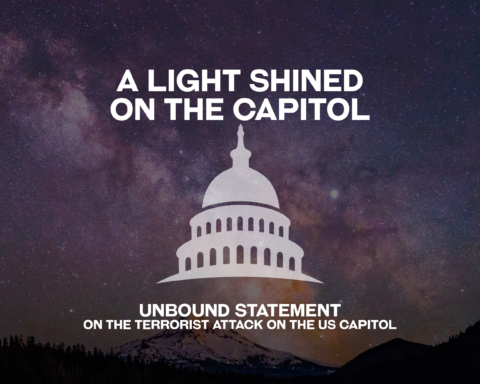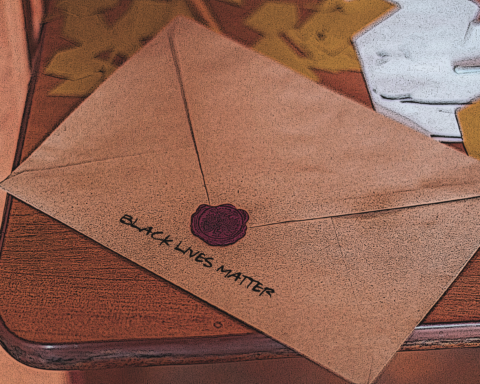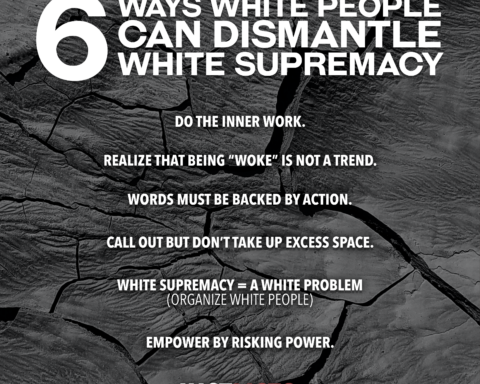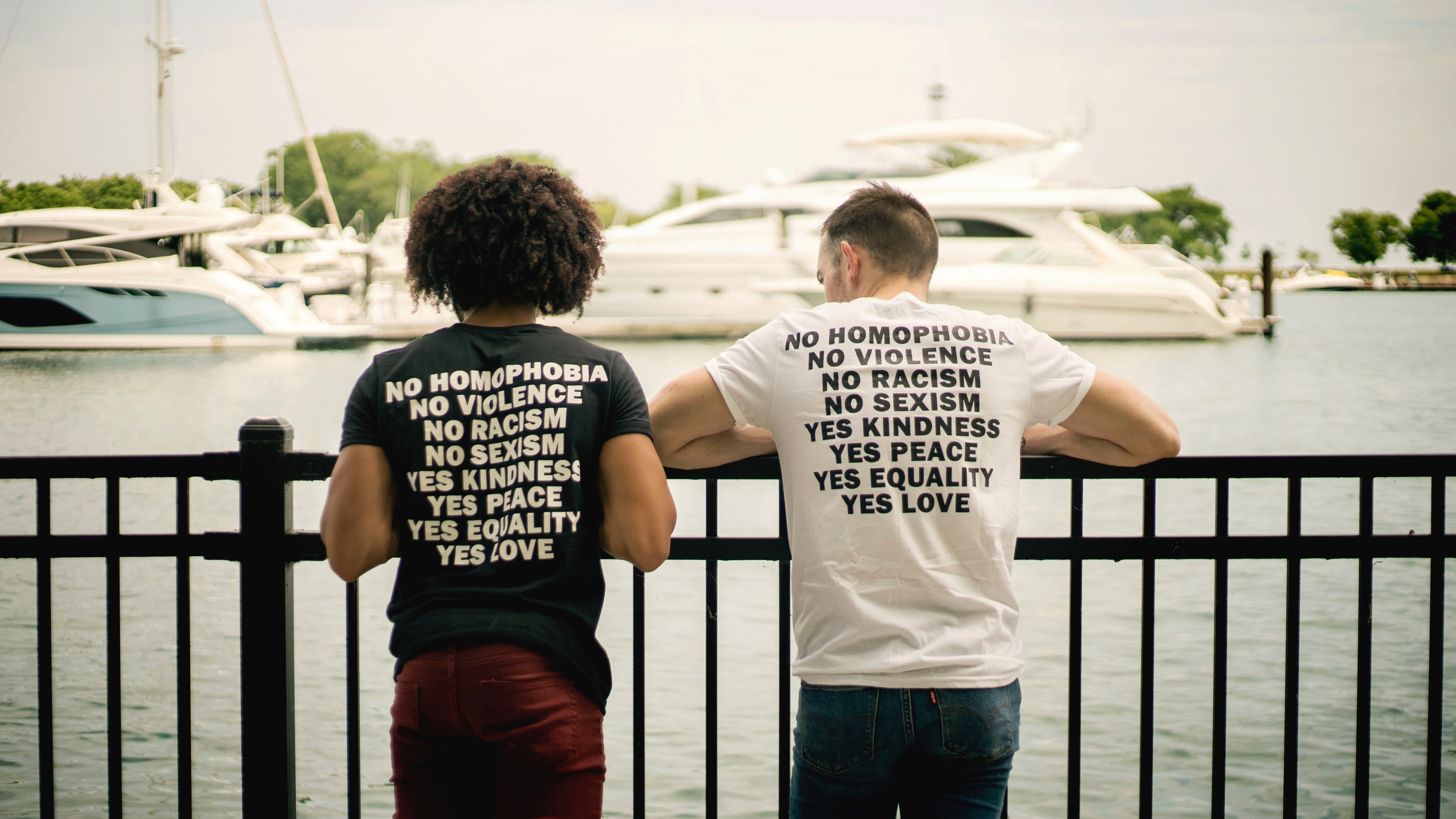In 1968, the Spirit was moving and doing a new thing in the fight for civil rights: a Poor People’s Campaign that sought to link issues of race and class justice and bring about transformative, moral change. 50 years later, a new Poor People’s Campaign has been building up momentum since its launch on December 4th, 2017 (see its official launch video below). It is now gearing up for “40 days of moral action” across the country, starting on Mother’s Day (May 13th).
The two most visible leaders of the Poor People’s Campaign are its co-chairs: Rev. Dr. Liz Theoharis (a Presbyterian minister, Co-Director of the Kairos Center for Religions, Rights, and Social Justice and a Founder and the Coordinator of the Poverty Initiative) and Rev. Dr. William Barber II (a Christian Church (Disciples of Christ) minister, a national board member of the NAACP, and a leader of the original Moral Mondays movement in North Carolina).
In order to get a better sense of the Poor People’s Campaign, its origins, and its tangible goals, I interviewed Rev. Jimmie Hawkins, Director of the Office of Public Witness for the Presbyterian Church (U.S.A). Rev. Hawkins has worked with Rev. Barber from day one of the Moral Mondays movement, and will play a major role in coordinating the Campaign’s civil disobedience from his D.C. office.

Director of the Office of Public Witness
HENRY: Could you briefly describe your background for the reader?
JIMMIE: I’ve always been interested in issues of justice & advocacy—in undergrad I remember attending protests against South African apartheid. I’ve also participated in hands-on help, with meals on wheels while I was in school—seminary in particular. I’ve been a pastor for 25 years in two calls (VA, NC) and social justice has always been an intimate part in my work in both areas. In fact, I first met Rev. Barber back in 1990 when he was a pastor in Martinsville, VA right down the street from me and we became involved in a local issue wherein hazardous waste was being brought into the black community. So everywhere I’ve gone I’ve been very community-oriented and just see it as a part of the calling it’s not anything external or extra but I see that we are called to pastor our congregations, to help them to spiritually grow…but also to see a connection between our congregational ministry and our community ministry. They’re all fingers of the same hand.
Has your perspective on this grown over time? Is there another layer added by your work as Director of the Office of Public Witness?
Yeah, it’s grown. [Now] even more so, I see Congregations as a vital part in social justice ministries. One of my personal growth areas is that I’ve come up with this little formula to describe how advocacy work is a part of the life of the congregation. I talk about the three aspects of ministry that are presented of Jesus in the Gospels: that he was a preacher, a teacher, and a healer.
The church is excellent in preaching…the proclamation of the Gospel occurs in every single congregation that considers itself to be a church. The teaching aspect, the Christian education part, especially for Presbyterians, is vital. I think we really excel and have a gift to offer as far as an emphasis on teaching ministry within the life of the church.
___________________________________________
We need to be sure that we deal with the systemic breakdowns in our communities and to challenge the community in areas of injustice…
Advocacy is the second tier of any healing ministry.
___________________________________________
But then we have the healing part, and I define that in the life of the church as the mission ministries of the church. There’s two layers to that, in one of which we excel: dealing with the emergency needs of people—food banks, soup kitchens. And I think we do well in encouraging our members to be involved in nonprofits like homeless shelters and the interfaith hospitality network that, in some states, allows homeless families to stay [in churches].
But there’s another area [of healing] that I think is just as important, and that’s advocacy. We don’t necessarily define a part of the healing mission as the church as advocacy, but that’s vital because otherwise we’re [just] going to be putting Band-Aids on the problem. We’re trying to feed homeless people that are staying homeless and hungry, trying to house people that are in temporary housing. We need to be sure that we deal with the systemic breakdowns in our communities and to challenge the community in areas of injustice. In Ferguson, we talk about how the municipality is padding their revenue on the backs of the poor through fines—locking people up if they don’t pay for a parking ticket. That’s a systemic problem. So I think that advocacy is the second tier of any healing ministry.
And I’ve always believed that, but I had never really articulated it to the degree I am now.
So, as I understand it, prior to the Poor People’s Campaign you were already involved in the Moral Mondays movement in North Carolina?
From the beginning! I still remember when on April 28th, 2013 [Rev. Barber] came to Durham. There was a lot of frustration in the faith communities about the laws being passed by the legislative bodies of the state of North Carolina. They refused to expand healthcare, they cut the number of teachers and teachers’ aides in the state—teachers had started leaving the state of North Carolina. They also came up with a voter suppression law. So he preached on that evening about “we’re gonna make our voices heard, and we’re going to have civil disobedience” the next day on Apr. 29. I knew him well enough to know that when he said civil disobedience, that meant that someone was going to jail. [Laughs]. So he asked for volunteers, and I raised my hand, and we met at the legislative building in Raleigh, NC the next day.
And Moral Monday was born on that day. That summer over 900 people, almost a thousand, were arrested. It really grew from that small group of 17 of us who were arrested to, by the fifth week, 150 people all at one time. The most powerful part was the rally beforehand, where there would be thousands of people parting like the red sea as we marched through them. We wound up having 10,000 people show up in Ashville, NC for a Moral Monday event.
So that first year was primarily focused on the arrests & protests. But then he also was working behind the scenes, especially in 2014 where it evolved to sit-ins, looking at voter registration—encouraging people to vote, registering people, doing early voting—and also lawsuits against the state of North Carolina for some of these voting restrictions.
Those lawsuits really took off in 2015 and culminated with the overthrow of voting law in the 4th circuit court of appeals in Richmond, VA, which said that it was basically racism in action with “surgical precision.” And the Supreme Court refused to hear the case, so therefore we won the case.
Given that this is such a deeply rooted problem, how do you define success for a movement like this?
The success is on several layers. One of those is increased awareness. Before Moral Monday, not many North Carolinians were paying attention to the laws being passed. It really made people start paying attention, and [then] there was outrage. Most people didn’t come for the civil disobedience—so they didn’t come for “the show.” They came because they were outraged at what was going on. So I think the movement raises awareness about the political climate and the oppression that’s being put forth.
It also empowers people. It was amazing to see how many people came and said “I’ve been waiting for this. I’ve been wanting to do say something, to do something, to shout and scream to let them know that I do not agree.” The sense that I am doing something that makes a difference empowers people. And it definitely did that for me—when you come together as a body it does tremendous things for your self-esteem and self-confidence and purpose and meaning.
___________________________________________
I think [these victories] really encourage people to say “what we’re doing is not only good for me as an individual, but it is helping my community, helping my society, helping my country to be a better place”.
___________________________________________
Also, it builds coalitions. What made Moral Monday work at its core was that Rev. Barber was able to build a coalition of over 200 organizations that were coming together and bringing out their constituencies. Labor was a major part. The LGBTQ community was a strong component of it. Obviously the church was the foundation of Moral Monday, because almost all of the leadership were clergy—by far mostly Christian, but there were also some strong participants from the Jewish community and every now and then from the Islamic community as well, there was a presence there. Not only with faith groups, but with nonprofits it was extremely strong, and you would see when we would be gathered on the lawn all the different signs representing different groups.
There was also a lot of training. We really focused on teaching, on encouraging people to participate in voter registration, monitoring the polls so there are no irregularities going on.
And then the last part would be the legislative lawsuits—you know, people want to see victories, and when that ruling came down last year that overturned North Carolina’s voter oppression laws, that was something that people had been waiting for. There are two levels of encouragement and empowerment; one is the spiritual where you feel good about what you’re doing and feel that you are fulfilling your faith mandate, but then also these political victories—they carry a lot of weight as well. And I think [these victories] really encourage people to say “what we’re doing is not only good for me as an individual, but it is helping my community, helping my society, helping my country to be a better place”.
So obviously there are a lot of the same themes, but now that it’s a national movement—could you speak to how the goals of the Poor People’s Campaign are either different from or building on the goals in North Carolina? What are the new challenges; what are the new targets for measurable victories?
I think there are probably more similarities, and more carryover, than differences—especially when you talk about voting rights. In an election year especially, 2018, that will be a strong undergirding of the Poor People’s Campaign. To make sure that people are empowered to go out and vote, not prohibited from voting. And to make sure that we have fair and just elections.
Voting registration is core, but we also need to make sure that when people show up to vote their names aren’t stripped from the logs. I think Healthcare is going to be a carryover. The state of North Carolina never did participate in the ACA [expansion of Medicaid]. But healthcare is going to come back as a national issue. So will the issue of poverty, especially as relates to economics and wages. Labor will be a strong component of the Poor People’s Campaign. At the kickoff press congress here in D.C., Labor was there in force. And the LGBTQ issues, as well, are going to get pushed.
The coalition-building piece, from state coalitions to national coalitions now, will be the most immediate objective. Part of that will be educating individuals and organizations on how to do advocacy. And hopefully we’ll be able to build relationships with members of Congress who are willing to promote legislation that the Poor People’s Campaign is advocating. Based on my conversations with many members, I do think that they are very interested in the voice of the faith community.
All right, so I just really have two more questions. First off—could you talk to me a bit about how you perceive the moral stakes, for Christians, of engaging with poverty, white supremacy, and systemic injustice?
I think this is the call of the Gospel—they say that your faith is personal, but not private. Our relationship with God is expressed through our relationship with other people. Paul says in I Corinthians 12: “When one suffers, all suffer; when one rejoices, all rejoice.” Christians are called to be moral people, to care about injustice, to care about the “least of these” all around us, and not just domestically but in response to people hurting people around the world. We are called, like doctors, to “do no harm” in this world—and we are called to love our neighbor as ourselves. And the way Jesus defined “my neighbor” was through the story of the Good Samaritan—we are called to be the rescuers of those who are often the opposite of who we are, who are not like us. We cannot miss this if we read the teachings of Jesus.
And then there is Matthew 25: “I was hungry and you fed me. I was thirsty and you gave me something to drink” … how can we escape that moral teaching, that we do have a responsibility to our brothers and sisters who are suffering?
And finally, what are the tangible ways that Unbound readers can support the Poor People’s Campaign before, during, and after the 40 days of moral action coming up starting May 13th (Mother’s Day)?
Become aware! Go online to the Poor People’s Campaign website and follow it on Facebook to be aware of other events. Before that date, Rev. Barber & Rev. Theoharis will be going all over the country.
Encourage your presbyteries & synods, or the equivalent in your church, to endorse the goals of the Poor People’s Campaign. Encourage people to be aware that this is an election year—you can help register people to vote.
Call the PC(USA) Washington Office of Public Witness (OPW) to learn how it is involved, and get on the network of emails.
Plan to come up for one or two days, or even a whole week, & participate in the events.
Be aware of the position of our church, that most of our leadership is endorsing it. Most of the goals are the same as those already endorsed by the PC(USA). We are very concerned with voting rights, with living wage. These is pretty much nothing new in the Poor People’s campaign that our denomination has not already addressed and been advocating for—for decades!
And I’d like to stress that Presbyterians are at the forefront of this; [PC(USA) pastor] Liz Theoharis is the co-convener of the Campaign along with Barber, even though his name may come up more. And Liz’ book, Always With Us, is very relevant to the campaign. Our moderators are also very engaged in this. So we are in many ways supporting and providing much leadership for this campaign.
***
Interviewee Bio: Rev. Jimmie Hawkins’ work for social justice has a long history, including service on the board of Church World Service and the National Council of Churches as well as leadership within both the NAACP and the Moral Mondays movement in North Carolina. Rev. Hawkins served as a pastor for 25 years before starting as Director of the Office of Public Witness in January of 2017. From civil disobedience to advocacy to civil lawsuits, Rev. Hawkins works to use all the levers of democracy to move toward peace, toward justice, and toward equality.
Author Bio: Henry Koenig Stone serves in Louisville, KY as Managing Editor of Unbound and Associate for Young Adult Social Witness. He holds a B.A. in Economics (2015) from the University of Chicago and an MPP (2017) from UChicago’s Harris School of Public Policy. His past work has focused on policy analyses of healthcare pilot programs and public health systems.






Unbound Social